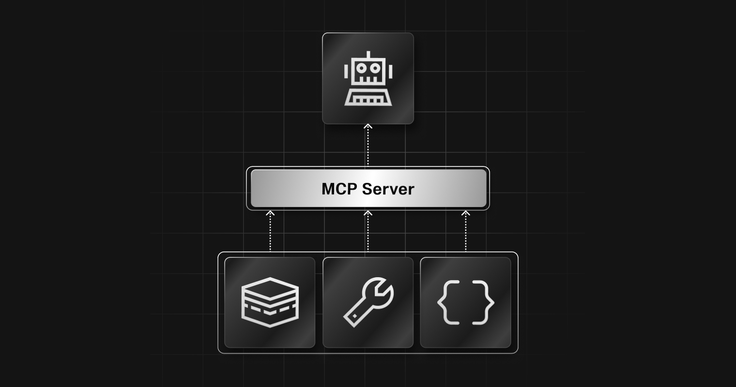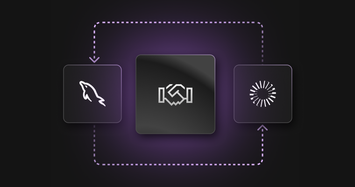When we began planning the first MCP Lisbon Meetup, we hoped to bring together a small group of curious builders. What we experienced instead was a packed room of 130 engineers, founders, and AI practitioners, all eager to discuss the next critical layer of the AI stack: the Model Context Protocol.

If you’re hearing about MCP for the first time, or trying to understand how it fits into the evolving AI ecosystem, this post will walk you through what it is, why it matters, and how real teams are using it today.
What is MCP?
MCP stands for Model Context Protocol. It’s an open standard designed to help AI agents—especially large language models—interact with external systems in a secure, structured, and scalable way.
Today, many developers use wrappers, LangChain, or custom glue code to connect LLMs to APIs. These solutions can work, but they come with major trade-offs: no consistency, no authentication model, no visibility, and orchestration logic that often breaks as complexity increases.
MCP was created to address these problems by introducing:
A formal authentication model to verify agents and their permissions
A registry of tools and capabilities that agents can discover
Structured message schemas for consistent interaction
Observability features so developers can understand what’s happening under the hood
If REST defined the interface layer for the internet, MCP aims to define the interface layer for AI-native infrastructure.
What We Learned at the Lisbon Meetup
At the July 9 event, three speakers shared how MCP is already being implemented in the real world. Their talks offered a clear view of where this protocol is going, and why developers should start paying attention.
Is MCP Ready for Enterprise?
The first talk was from our software engineer Pedro Rodrigues, who prepared a walkthrough of the current MCP authentication layer. His talk focused on how MCP handles client identity and permissions, the whole authentication flow between the MCP client and the MCP server and the next steps for authentication in MCP.
He explained that without secure execution flows, agent-based systems are dead on arrival in most enterprise environments. MCP provides a framework to solve that, and SingleStore is already working on ways to implement it for internal and customer-facing tools.
One key takeaway: treating agents as first-class actors means applying the same rigor we apply to users, services, and APIs. Pedro showed us that the current MCP authentication spec has that covered.
For the next steps, it is expected to see more Identity Providers like Okta to manage multiple user sessions across different MCP servers, by standing between the MCP clients and the MCP servers that the user is connected to.
Your API Is Not an MCP Server
In this Databricks (Neon) talk, Pedro Figueiredo challenged the audience to rethink their assumptions. His core argument was that most APIs are not designed for agentic reasoning, and that simply exposing endpoints to an LLM won’t unlock its full potential. It could actually be counterproducent since providing too many tools to the agent might cause hallucinations.
He compared traditional APIs to MCP servers, highlighting the difference in behavior. While APIs are typically stateless and rigid, MCP servers are designed to be contextual, adaptive, and aware of what tools are available, what actions have been taken, and what the agent is trying to accomplish. This means that most endpoints descriptions are human-oriented, while the ones from the MCP tools are agent-oriented.
This talk generated some of the most active discussion during Q&A. It was clear that developers are interested on adopting AI in their services and implementations and MCP might be the connector that they need.
What MCP Can Bring to Your Analytics Platform
The last talk was from Dremio’s Tech Evangelist and PM Will Martin with a forward-looking presentation on how MCP can be used to orchestrate analytics workflows. His examples included AI-powered dashboards, context-aware query planning, and improved collaboration between agents and data teams.
The key point was that AI-native analytics requires more than just plugging a model into a SQL engine. It needs structured execution, auditability, and tool coordination—all of which MCP supports.
Will's talk helped expand the audience’s view of what MCP can do, especially in the data analytics field. It's not just for agent wrappers. It’s for anyone building intelligent, interconnected systems.
Why This Matters
There’s a reason MCP is gaining traction now. The AI infrastructure stack is maturing, and companies are building more ambitious, agentic applications. But most of those systems are still fragile. Without standards, the same problems keep appearing: brittle glue code, weak security, lack of observability, and poor developer experience.
MCP introduces discipline where today there is often chaos. It helps developers design systems that are secure, modular, and easy to scale. Just like REST once helped unify API design, MCP offers a path to unifying how AI agents work across environments.
At the Lisbon meetup, we saw this momentum first-hand. Teams are not only exploring MCP—they’re already building with it.
What the Community Said
The response to the event was strong, both online and in the room.
2,189 people viewed the event page in the month leading up to the meetup
249 guests RSVP’d, nearly reaching venue capacity
The event drew attendees from Lisbon, Porto, London, and beyond
We received a 4.8 out of 5 rating across 27 reviews
Here’s a snapshot of the feedback:
“Great crowd, fantastic talks, and kept to time.”
“Very good organization. I wish the talks had been longer, maybe 30 to 45 minutes.”
“The presentations felt a bit like pitches, but the networking was fantastic.”
That mix of praise and constructive feedback gives us a clear path forward: keep the quality high, go deeper next time, and make space for more open discussion.
Should You Use MCP?
If you’re building LLM-based applications, analytics platforms, developer tools, or AI assistants, it’s worth exploring MCP now. The protocol is still young, but it’s solving real problems.
You don’t need to rebuild your stack. You can start small:
Try defining your tool interfaces using the MCP schema
Experiment with the authentication model
Wrap one of your services in an MCP-compatible server
More importantly, join the discussion. The community is collaborative, fast-moving, and focused on solving practical problems.
What’s Next
The Lisbon meetup is just the beginning. We’re planning future events with longer sessions, hands-on demos, and deeper technical dives.
If you’re interested in contributing, attending, or sharing what you’re building, we’d love to connect. Follow MCP Lisbon on LinkedIn or subscribe to our updates for the latest.
And to everyone who made the event happen—our speakers, our partners at Lisbon AI, and every guest who stayed late to ask smart questions—thank you. The future of AI-native infrastructure is being written now, and it’s exciting to be part of it.
















